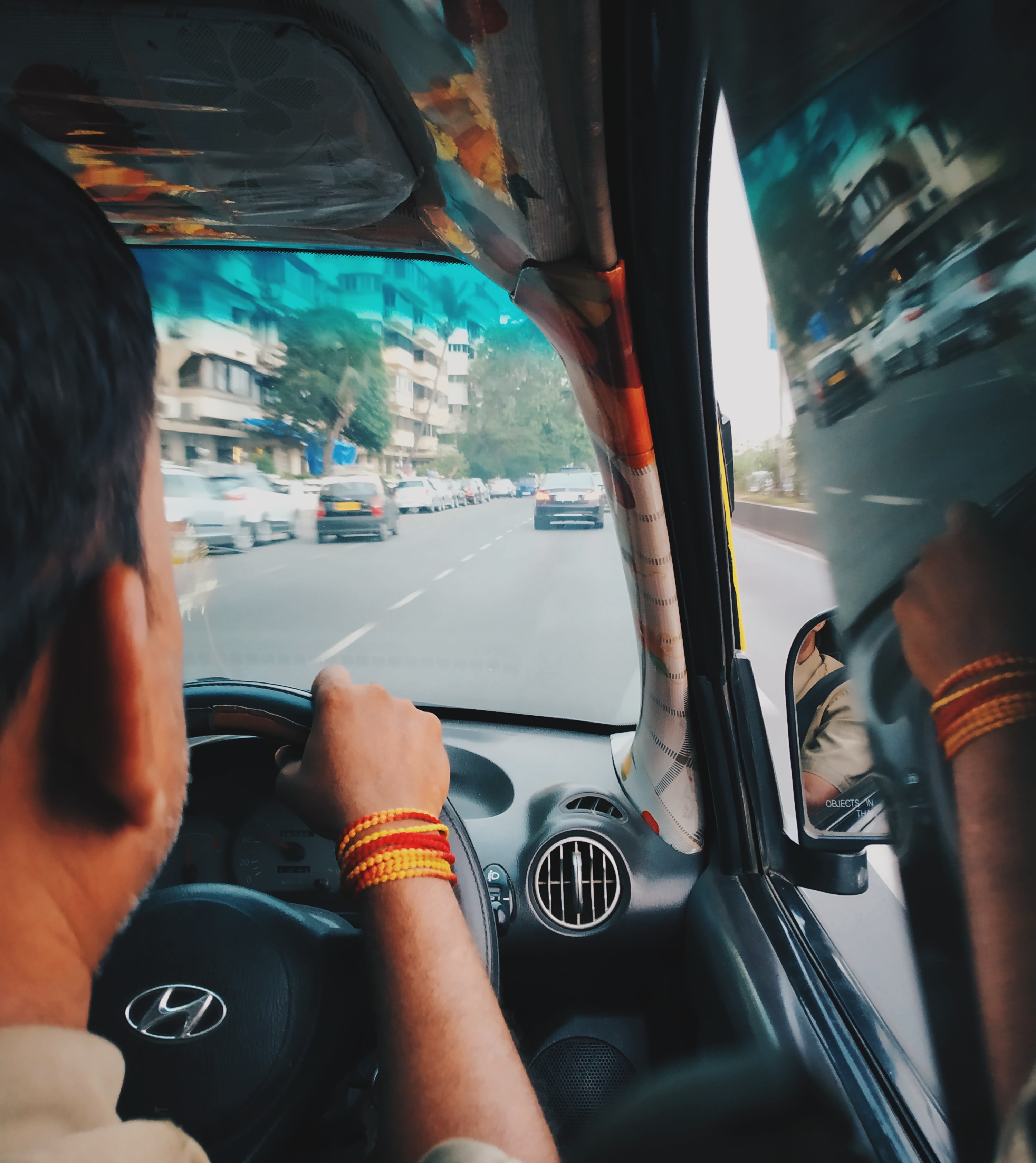Left with no other option, many app-based cab drivers of the Chandigarh Tri-city region have come together to start their own taxi app.
Suresh*, 35, an app-based cab driver, from the Chandigarh Tri-city region, subscribes to multiple ride-sharing platforms to earn his living. Before driving for app-based platforms, he was a driver at a private company. Lured by higher-income opportunities and flexible working hours, he joined his first taxi app in 2015.
Initially, things seemed rewarding, but over time, as the companies expanded and got ingrained deeply into our social economies, commissions were raised and incentives were reduced. He feels that platforms like Uber and Ola are exploitative in nature and speaks of how he has no freedom, “Yahan sirf humara ‘shoshan’ ho raha, hum toh puri tarah ‘bandh’ gaye hain, koi freedom nai hai humari!”
Drivers like Suresh are made to pool their own resources, assume risks and pay taxes that were earlier handled by these firms. In the name of flexibility, drivers need to work for longer hours to earn a decent income. Moreover, platforms exercise algorithmic control that act like a boss with a ‘digital curtain’ in-between, where the worker is unaware of who the boss is.
Suresh shares an incident where his frequency of booking rides was reduced, as his car was at a repair workshop and he could not take bookings for a week. Constant tracking, misclassification of workers, and use of rating systems and reputational scores are effective ways to discipline and control app-based workers.
Suresh mentions that the pandemic has made things worse with a ‘double whammy’ – by eating up their savings, and because of a lack of passengers as schools, colleges and private offices remained shut. More so, during the pandemic, these platforms raised their commissions instead of reducing them, adding to drivers’ miseries.
Suresh now finds himself stuck as he needs to pay back the loan with which he bought the car. He also believes that there is no alternative work for him that can provide him with the decent income that he used to earn through the app-based work initially in 2015 or 2016.
Suresh’s voice echoes with thousands of informal workers in the city, where gig work is an alternative to limited available opportunities in the formal labour market. The informal sector of India employs around 90% of India’s workforce, according to a 2019 International Labour Organization study. The advent of the gig economy has given an opportunity to the platform companies to thrive and take advantage of India’s informal labour market.
As traditional jobs are being replaced by agile app-based work, gig work has become a primary source of income for many informal workers in India, leaving them in a more vulnerable position, unlike in developed countries where workers are engaged in gig work to supplement their income. So, gig work in India is simultaneously a site of degradation and opportunity.
Raj*,29, a college dropout and now a cab driver, sighs, “App company laalach deti hai, incentives dekar aur commission na lekar, fir driver aur customer jorti hai, sabhko aadat parh jaati hai, driver aur customer ko baithe baithe ride mil jaata hai, fir humari majburi ka fayda uthati hai.”
According to him, newly-launched companies initially provide drivers with more incentives and charge lower commissions as a marketing strategy. But once it is able to capture a sufficient market, it then raises commissions, reduces incentives for drivers, and charges higher fares to the customers.
Workers keep shifting from one app to another, especially when a new app is launched, in the hope of higher income opportunities. He further adds that due to Covid there are not many jobs in the market, so he continues to drive for these companies.
Sumit Chhabra, the tri-city president of Cab Operators Social Welfare Association (COSWA), cites drivers’ daily experiences of fluctuating fare rates, “We are not given any price for extra kilometers that we have to drive in order to pick the customer, sometimes we are harassed by local authorities to pay challans and taxes which drivers are not liable to pay.” He claims that drivers are not compensated for any rise in living costs, like fuel prices, and are also being paid less than the per-kilometre taxi-fare rate fixed by the state authorities. They are upset with state functionaries as no step has been taken to support cab drivers in their helpless situation.
Overdominance of market forces has weakened drivers’ voices. Left with no other option, cab drivers came together to form a union in 2019 – COSWA. Members of the union have decided to take control over the means of production and distribution, to start their own taxi-App, ‘NZCU’ (North Zone Cab Union), and registered it as NZCU Pvt. India Ltd. in the year 2021. It has revived the centuries-old cooperative model.
Harvinder Singh, a key member of COSWA and one of the directors of the NZCU India Pvt. Ltd., believes that by building their own app on the basis of collective identities, they can compete with platform companies and drive them away. “We can better address the demands of our workers as well as of consumers as we work at the ground level and we know what everyone wants,” states Harvinder.
Platform cooperatives hold a great promise, as they not only provide an alternative platform where they can work according to their own conditions but also will be able to compete with existing platforms. But like platform companies, they too have to survive in the environment of robust market competition.
NZCU App is still in the building process and COSWA is looking for more investors. It will be interesting to see how democratic ownership in platform cooperatives like NZCU would shape the future of the gig economy.
*Names have been changed to protect identity.
Subhashri Sarkar is a PhD Scholar at IISER, Mohali.
Featured image: Varad Parulekar / Unsplash

